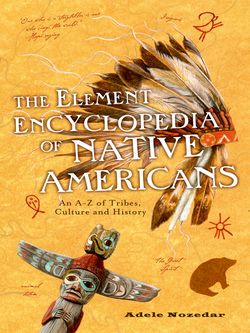Читать книгу The Element Encyclopedia of Native Americans: An A to Z of Tribes, Culture, and History - Adele Nozedar - Страница 129
CORNPLANTER
Оглавление“It is my wish and the wishes of my people to live peaceably and quietly with you.”
1770s–1836
A renowned Seneca chief, Cornplanter was born to a Seneca mother and a Dutch father, a fur trader, in the Genesee River area of New York. Initially Cornplanter—whose name in Seneca approximated to “the planter” or “by which one plants”—did not know that his father was white; it was only after repeated teasing by other children that his mother told him the truth. His father, Johannes Abeel, was living in Albany, and so Cornplanter visited him. The visit was amicable, but Cornplanter came away empty-handed. Subsequently, fighting on the side of the British during the Revolutionary War, Cornplanter captured his father and wanted him to remain among the tribe, but Abeel refused. Cornplanter also had a half-brother named Handsome Lake.
During the Revolutionary War, Cornplanter argued for neutrality, believing that the white men’s war should be fought by the white men and that the Iroquois should remain neutral. However, both sides tried to persuade the tribe to take their part, tempting them with money and goods. The tribe voted to fight on behalf of the British and, despite his leaning toward neutrality, Cornplanter respected the majority’s decision and became one of two war chiefs. When the British subsequently lost, Cornplanter, with his formidable skills of diplomacy and oratory, understood the sense in having friendly relations with the newly minted U.S. Government, which the Iroquois referred to as the “13 Fires.” Cornplanter helped mediate between the Government and several different tribes as well as his own people. He took part in meetings with President Washington and also with Thomas Jefferson. Throughout instances of Indian resistance he managed to retain neutrality for the Iroquois. In 1790 he traveled to Philadelphia to appeal to Governor Thomas Mifflin on behalf of his people; he left with a promise that Iroquois land would be protected.
As a thanks for his help, Cornplanter was granted 1,500 acres of land in the western part of Pennsylvania. The deeds were handed over in 1796. He was also given a further 700 acres, the Cornplanter Grant, in Warren County.
In later life, Cornplanter became disillusioned with the ways of the Americans. He saw his people descend into a despair born of hopelessness compounded with alcohol abuse; many of them had also lost touch with their traditional religious ceremonies, adopting the Christian faith of the white men. He felt that this further undermined his people’s sense of self. Cornplanter turned his back on the ways of the white men, burning his military uniform, destroying his medals and awards, and breaking his sword, although he did retain his respect for the Quaker faith.
In 1836, Cornplanter died in Pennsylvania; he had asked that his grave remain unmarked, but some years after his death the spot was flooded when a reservoir was built there, and a monument was erected in his honor.
